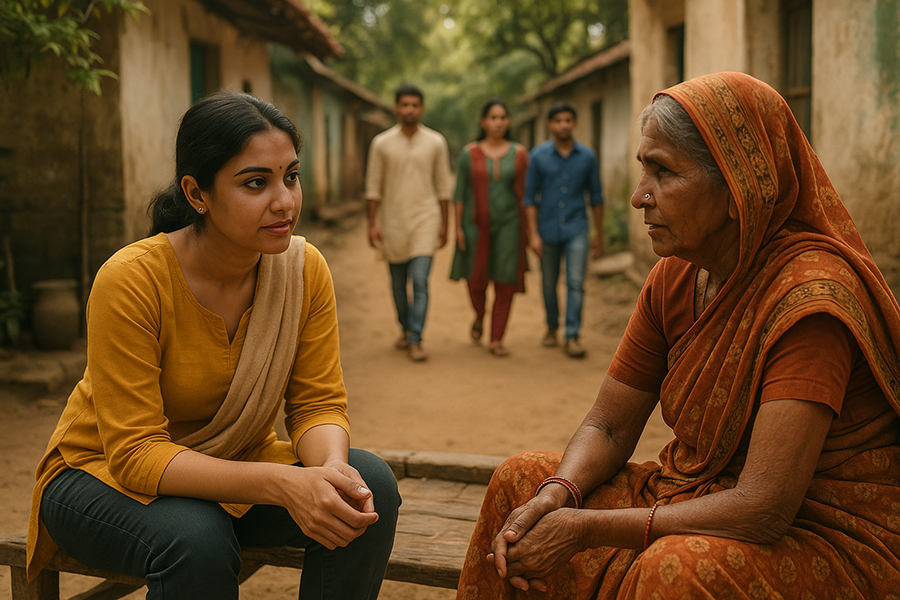I started my journey in this sector with PRADAN. I was posted in one of the most poverty prone district of Assam- Lower Assam. I was born and bought up in Upper Assam which has quite a different context than Lower Assam. In the beginning I struggled in understanding the dialects of people as they speak a unique blend of Bengali and Assamese; whereas I speak typical Assamese. The villages here were different than villages in my native place. I realized the diversity of context varies from place to place. It took me a while to understand my own role and responsibilities as an NGO worker. The real challenge for me was understanding the village, district and then our state.
Working with the community is something very close to my heart. It is where I grew up as an individual. I had a formal degree in Agriculture yet I realized that I knew nothing as compared to my fellow farmers. The more I worked with them in their fields the more I could test my knowledge with them. I gradually developed a strong bond with the community. I recognized their issues as mine and looked for answers everywhere possible. It was always easy to list out farmers as they are visible in a village. But the actual struggle that I was faced with was promoting SHG’s. Mobilizing women collective was a real tough job!!! After a lot of hard work and consistent effort REAL SHG’s happened- this is where my journey began. I have devoted a big part of my PRADAN days in nurturing those SHG’s. I was mentored by some of the best seniors of PRADAN. I learned through their experiences and started seeing things through their lenses.
Field work is often very frustrating. Over time I built a strong bond with SHG members and had been working closely with them. I tried my best to engage with them personally. I had always been keen in exploring their lives as I had my own issues with my life. Every member had a unique story and each of them was a story!!! The small amount of happiness that I could bring in their lives was priceless. I am still carrying the grief of helplessness as I couldn’t be a support system for my SHG didi’s when it came to domestic violence in spite of trying my best and the gender sensitization trainings that I underwent. The real scenario however being that the police deny registering an FIR and the lawyer bluntly saying that there is no law for the poor. I always had a bleeding heart. I could listen to them but couldn’t intervene professionally with them due to my job limitations or my own mental barriers. I felt guilty about my own inefficiencies. I couldn’t reach for any support to inquire about. I am consciously aware of my inadequacies. I knew that I need some moulding to channelize my thought process. There was a constant debate going on in my mind.
ISDM is one of the best decisions I have ever made in my life whether I get a job or not by the end of this course. Each session is enriching my thought process. The myriad ways of development and seeing through different lenses is making me reflect upon my past experiences and learning. Learning with young generation is really engrossing!! I am amazed by their knowledge. The concept of collaboration is something that making me ponder. Why didn’t I seek for collaboration before? I was so limited and confined to myself. I never imagined that a person like Harsh Mander really exists on earth- his subtle ways of facilitation really shook me! A person with compassion and respect for another human being. He verified my understanding of having a bleeding heart. It’s not one’s weakness to think in humane ways. I am going through a process metamorphosis as a person. I am consciously feeling the essence of this beautiful journey. I feel strong now.




